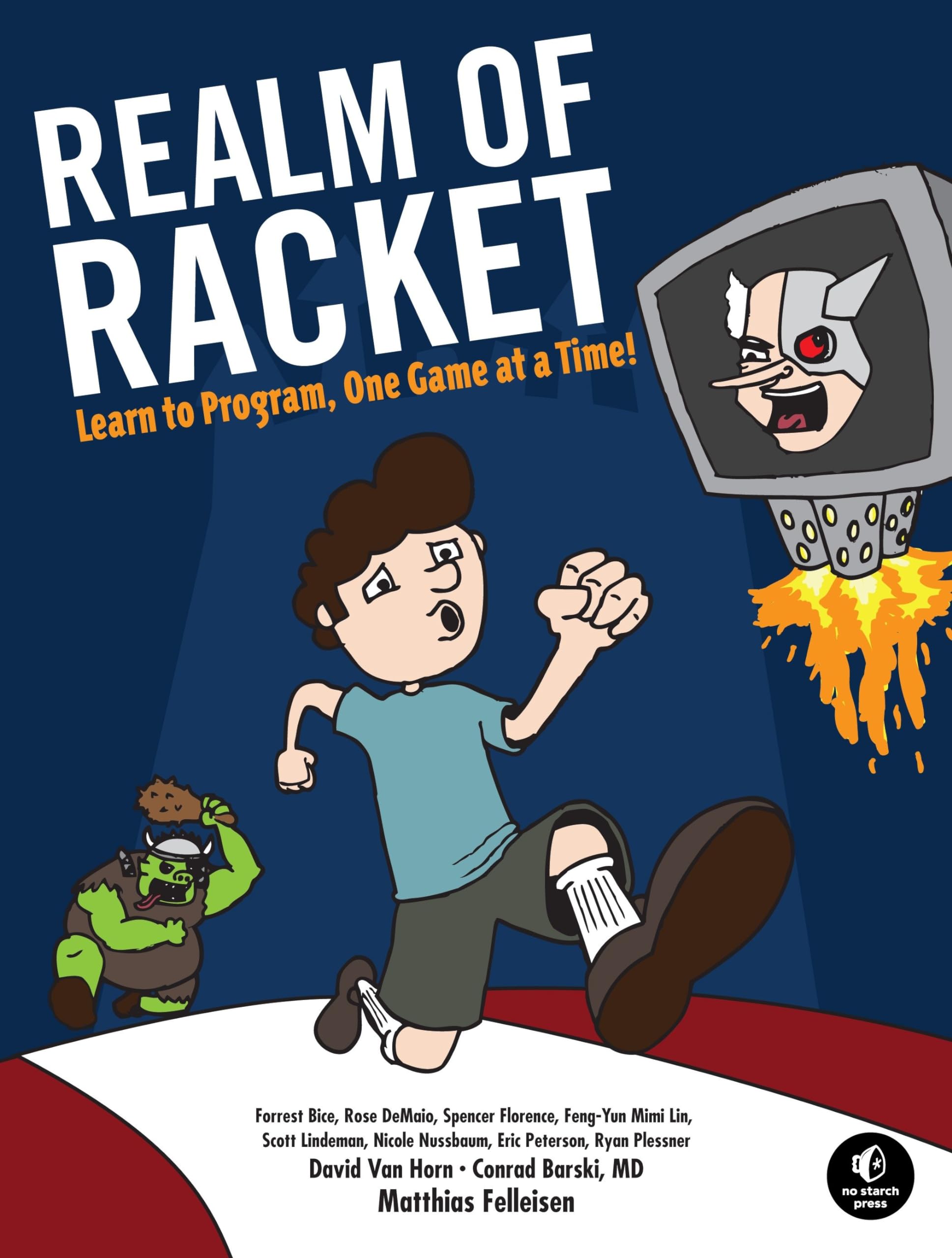Unlike BASIC though, Racket no toy language. It's very powerful and expressive. Its a Scheme dialect btw.
I occasionally spend some time contributing to a Racket-JS compiler called Whalsong. Whatever games you write in Racket using big-bang can run on your browser. Checkout some examples here http://bigbang.ccs.neu.edu/search?q=%23stevelikes
[1] http://www.amazon.com/Realm-Racket-Learn-Program-Game/dp/159...
The Tandy/Radio Shack books for the Color Computer series (and it's astoundingly good LOGO implementation) were amazingly clear and concisely written with lots of examples, and because in those days even a disk drive wasn't a guarantee, all the examples were written to be hand-typed and experimented with.
There were even books in those days that aimed to teach kids machine language! [1]
That said, I think Djikstra and Felleisen may be slightly right about the long-term usefulness of old-fashioned BASIC and LOGO for learning, but there are a few books in modern languages that come close.
Hello World![2] was explicitly written to hearken back to those old manuals, by a father aiming to teach his 12-yo son programming with Python.
Land of Lisp[3] and Realm of Racket[4] also call to mind those old books as well, though they're targeting a bit older audience and have their quirks (LoL is a bit in-love with huge nested trees and a-lists in the examples, and Realm of Racket tends to gloss over a lot of the examples and expects you to just read the sample code rather than walking you through the process completely).
The Little Schemer[5] is also a fantastic little book that takes on the form almost of a set of brain-teasers, and teaches recursive thinking entirely by example and in methodical detail. The later chapters can be a bit stumpy, but if you go through the book step by step in regular sessions it builds on itself pretty well.
All of these are aiming at around the 12+ age range though, I don't think there's much out there anymore for anything younger.
[1] http://boingboing.net/2013/05/16/1983s-wonderful-introducti....
[2] http://www.amazon.com/Hello-World-Computer-Programming-Begin...
[3] http://www.amazon.com/Land-Lisp-Learn-Program-Game/dp/159327...
[4] http://www.amazon.com/Realm-Racket-Learn-Program-Game/dp/159...
[5] http://www.amazon.com/Little-Schemer-Daniel-P-Friedman/dp/02...


That is what I gave my mom when she asked what she could try programming on. It features a simple whole window editor/repl where you can get straight into business.
What failed was the supporting literature. I thought Realm of Racket would have been ideal for self-study but it did assume more background than she had...
https://www.amazon.com/Realm-Racket-Learn-Program-Game/dp/15...